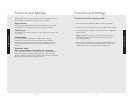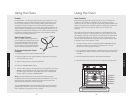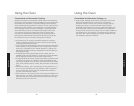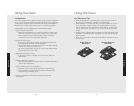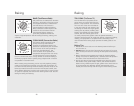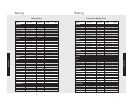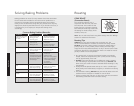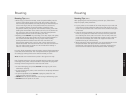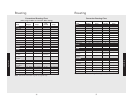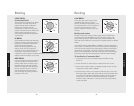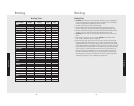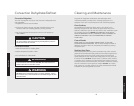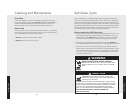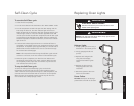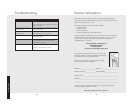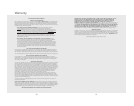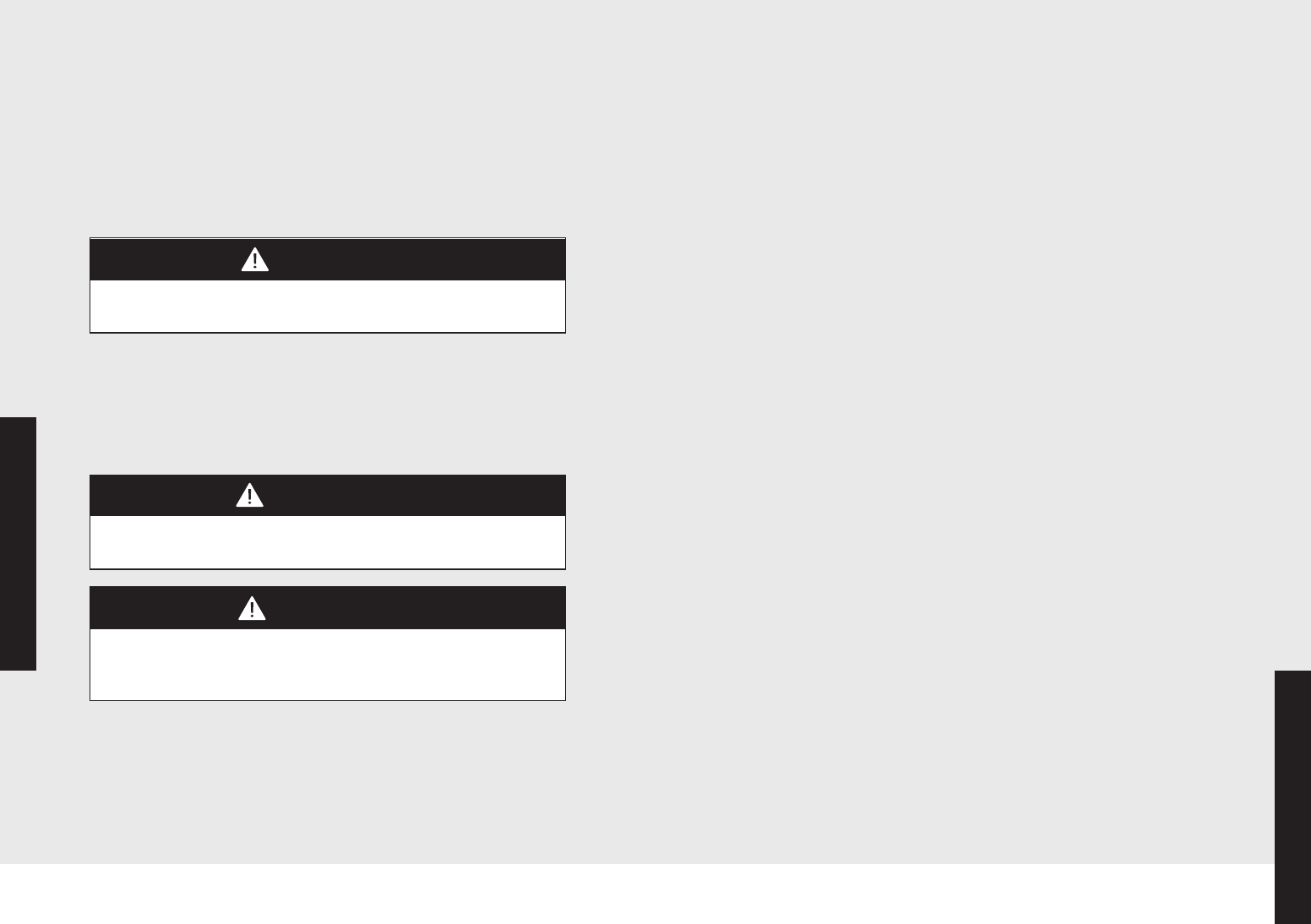
42
Convection Dehydrate/Defrost
Operation
43
Cleaning and Maintenance
Convection Dehydrate
This oven is designed not only to cook, but also to dehydrate fruits
and vegetables.
1. Prepare the food as recommended.
2. Arrange the food on drying racks (not included with the oven;
contact a local store handling speciality cooking utensils).
3. Set the appropriate low temperature and turn the selector to
“TRU CONV”.
Convection Defrost
1. Place the frozen food on a baking sheet.
2. Set the temperature control to “OFF”.
3. Turn the selector to “TRU CONV”.
WARNING
To avoid sickness and food waste, DO NOT allow defrosted food to
remain in the oven for more than 2 hours.
CAUTION
You must carefully check the food during the dehydration process to
ensure that it does not catch fire.
WARNING
DO NOT turn the Temperature Control on during defrosting. Turning
the convection fan on will accelerate the natural defrosting of the food
without the heat.
Any piece of equipment works better and lasts longer when
maintained properly and kept clean. Cooking equipment is no
exception. Your oven must be kept clean and maintained properly.
Oven Surfaces
Several different finishes have been used in your electric oven.
Cleaning instructions for each surface are given below. Your oven
features a Self-Clean cycle for the oven interior. See “
Self-Clean Cycle
”
for complete instructions. NEVER USE AMMONIA, STEEL WOOL
PADS OR ABRASIVE CLOTHS, CLEANSERS, OVEN CLEANERS, OR
ABRASIVE POWDERS. THEY CAN PERMANENTLY DAMAGE
YOUR OVEN.
Control Knobs
MAKE SURE ALL THE CONTROL KNOBS POINT TO THE OFF
POSITION BEFORE REMOVING. Pull the knobs straight off. Wash in
detergent and warm water. Dry completely and replace by pushing
firmly onto stem.
Stainless Steel Parts
Some stainless steel parts may have a protective wrap, which must be
peeled off. All stainless steel body parts should be wiped regularly with
hot, soapy water at the end of each cooling period and with liquid
cleaner designed for this material when soapy water will not do the job.
If build-up occurs, DO NOT use steel wool, or abrasive cloths, cleaners,
or powders. If it is necessary to scrape stainless steel surface to remove
encrusted material, soak area with hot, wet towels to loosen the material,
then use a wooden or nylon spatula or scraper. DO NOT use a metal
knife, spatula, or any other metal tool to scrape stainless steel surfaces.
Scratches are almost impossible to remove.
Product Care



